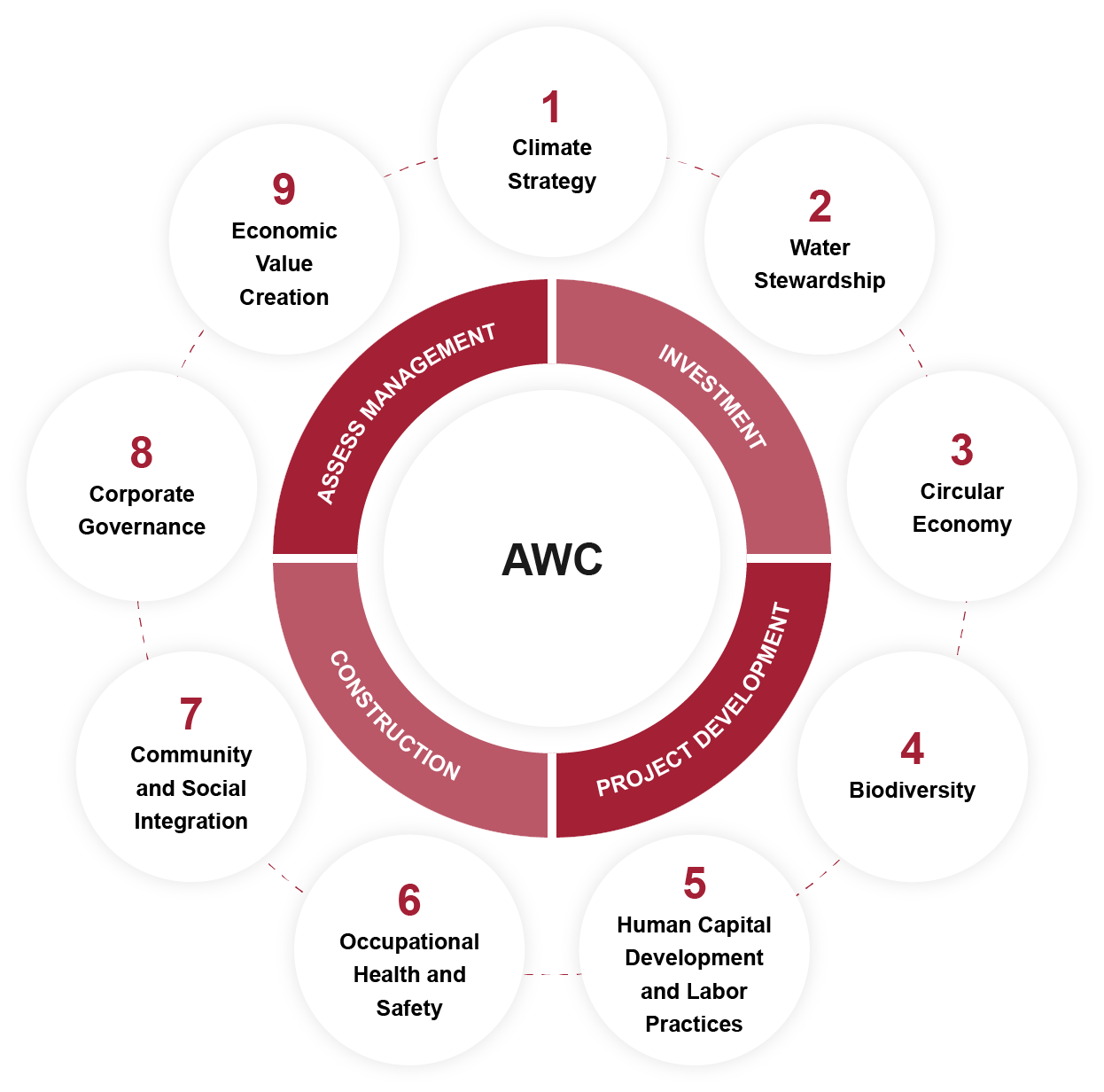Policies
AWC is committed to conducting its business sustainably in alignment with sustainability frameworks at both national and global levels, while continuously adhering to the creation of value for customers and stakeholders in all dimensions. The Company places importance on every activity of its business operations, from the investment process and project development to delivering quality services to customers, while also ensuring the long-term sustainability of all stakeholders’ values. This commitment is based upon a foundation of corporate governance aligned with the UN Sustainable Development Goals. In 2023, AWC established a Sustainability Management Policy consisting of nine principles covering value creation in the Environmental, Social, and Governance (ESG) dimension for sustainable economic growth. This policy serves as a framework for driving AWC’s business operations throughout the entire value chain. The policy includes the following


Good Governance
Strict compliance with the law, regulations, rules and code of conduct, adoption of international standards including transparent disclosure of information to stakeholders
Customer Responsiveness
development of AWC’s capacity to excel in responding to the demands of customers and tenants
Manage & Build Capacity throughout the Supply Chain
Raise awareness and understanding of policy and sustainable management framework for customers, business partners, tenants and employees for adoption. Assessment of sustainability of every business partner to promote and improve service and reduce impact from supply chain.
Climate Action
Reduce GHG emissions through building designs that are more energy efficient and increase alternative energy and renewable energy sources and designs our assets to create value, protect the climate, conserve and increase greenspaces
Comprehensive Environmental Management
Reduce environmental impact from operations by assessment of risk in every area starting from construction phase to operation phase to properly prevent and mitigate impact to communities, society and environment
Resource Efficiency
Use water, energy and other natural resources efficiently, promote construction and select materials and manage assets in an environmentally friendly way in accordance with green building approach.
Community & Social Development
Social value creation, promote job creation and income and raise living standards for surrounding communities through investments in social projects including creating spaces for communities for sustainable benefits
Leadership & Human Resources Development
Develop necessary skills and competencies of employees and succession process plans including fostering a supportive environment to attract and retain high-performing individuals and facilitating
Human Rights
Strict compliance with international labor and human rights standards, assess human rights risks with preventive and mitigation measures against human rights violation with reduction of inequality through supply chain.
Continuous Improvement
Monitor, review, evaluate and develop standards in every level of operation of the business to support the continuous improvement of the organization in a sustainable way.
